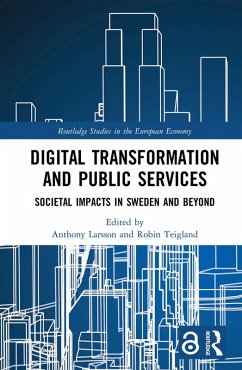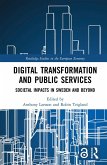This book takes its point of departure from the 2016 Organization for Economic Co-operation and Development (OECD) report that targets specific public service areas in which government needs to adopt new strategies not to fall behind. Specifically, this report emphasizes the focus on digitalization of health care/social care, education, and protection services, including the use of assistive technologies referred to as "digital welfare." Hence, this book explores the factors potentially leading to whether state actors could be overrun by other non-governmental actors, disrupting the current status quo of welfare services.
The book seeks to provide an innovative, enriching, and controversial take on society at large and how various aspects of the public sector can be, and are, affected by the ongoing digitalization process in a way that is not covered by extant literature on the market. This book takes its point of departure in Sweden given the fact that Sweden is one of the most digitalized countries in Europe, according to the Digital Economy and Society Index (DESI), making it a pertinent research case. However, as digitalization transcends national borders, large parts of the subject matter take on an international angle. This includes cases from several other countries around Europe as well as the United States.
Dieser Download kann aus rechtlichen Gründen nur mit Rechnungsadresse in A, B, BG, CY, CZ, D, DK, EW, E, FIN, F, GR, HR, H, IRL, I, LT, L, LR, M, NL, PL, P, R, S, SLO, SK ausgeliefert werden.









